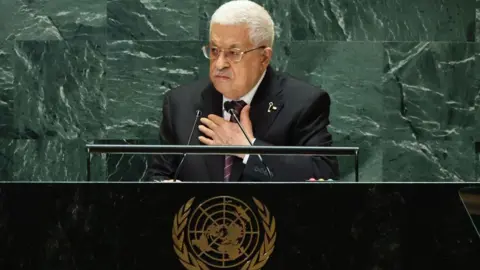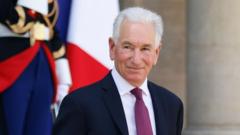The United States has formally declared its intention to withdraw from UNESCO, the United Nations cultural agency, following an announcement by the State Department that reflects the administration's longstanding skepticism towards multinational agreements and organizations. The exit from UNESCO will take effect at the end of the forthcoming year, marking yet another instance of the Trump administration's efforts to sever ties with global cooperatives.
Tammy Bruce, a spokeswoman for the State Department, stressed that maintaining membership in UNESCO is not aligned with the United States’ national interests. She further articulated claims that the organization has been promoting "divisive social and cultural programs" while adopting a "globalist agenda" that contradicts President Trump’s "America First" policies.
This decision marks a continuation of a tumultuous relationship between the United States and UNESCO, which has faced criticism under various U.S. administrations. Previously, the U.S. had exited the organization during Trump's initial term in office due to claims of anti-Israel bias, only to rejoin under the Biden administration's leadership. The withdrawal now comes on the heels of Trump's executive orders earlier this year aimed at reevaluating U.S. funding for United Nations agencies, including UNESCO.
Founded in 1945, UNESCO is celebrated for naming World Heritage Sites and promoting initiatives concerning education, cultural preservation, and gender equality. Unfortunately, much of its funding has been hampered by conflicts with U.S. policy, particularly following a 2011 vote to grant Palestine full membership, which led to a major funding cut from the U.S. that constituted nearly 20% of UNESCO's budget.
UNESCO’s work includes advocating for global educational standards and cultural heritage programs, benefitting various nations worldwide. The decision to withdraw signals larger tensions regarding the U.S.'s role in fostering international cooperation and development in cultural domains, with opponents warning that this creates opportunities for rival powers like China to influence UNESCO’s agenda.
Aurelien Breeden, a journalist based in Paris, reports for The Times on current events in France and their international implications.
Tammy Bruce, a spokeswoman for the State Department, stressed that maintaining membership in UNESCO is not aligned with the United States’ national interests. She further articulated claims that the organization has been promoting "divisive social and cultural programs" while adopting a "globalist agenda" that contradicts President Trump’s "America First" policies.
This decision marks a continuation of a tumultuous relationship between the United States and UNESCO, which has faced criticism under various U.S. administrations. Previously, the U.S. had exited the organization during Trump's initial term in office due to claims of anti-Israel bias, only to rejoin under the Biden administration's leadership. The withdrawal now comes on the heels of Trump's executive orders earlier this year aimed at reevaluating U.S. funding for United Nations agencies, including UNESCO.
Founded in 1945, UNESCO is celebrated for naming World Heritage Sites and promoting initiatives concerning education, cultural preservation, and gender equality. Unfortunately, much of its funding has been hampered by conflicts with U.S. policy, particularly following a 2011 vote to grant Palestine full membership, which led to a major funding cut from the U.S. that constituted nearly 20% of UNESCO's budget.
UNESCO’s work includes advocating for global educational standards and cultural heritage programs, benefitting various nations worldwide. The decision to withdraw signals larger tensions regarding the U.S.'s role in fostering international cooperation and development in cultural domains, with opponents warning that this creates opportunities for rival powers like China to influence UNESCO’s agenda.
Aurelien Breeden, a journalist based in Paris, reports for The Times on current events in France and their international implications.























